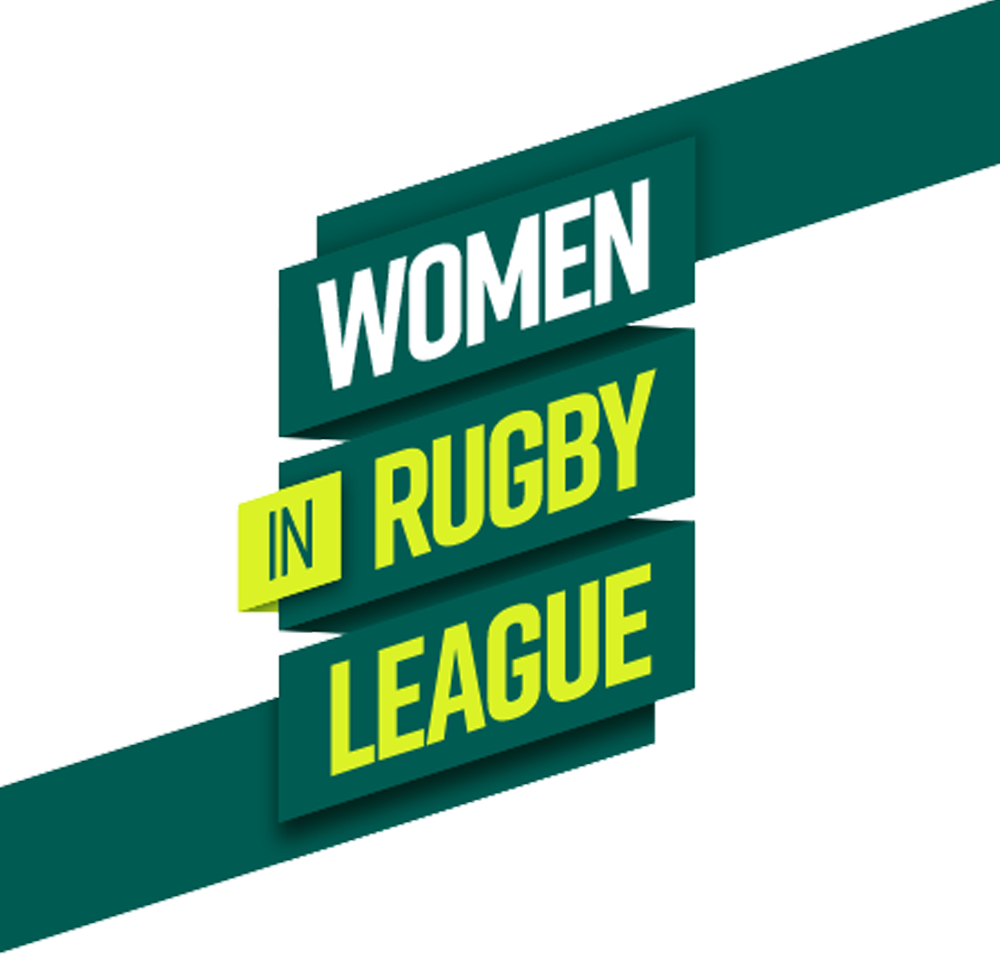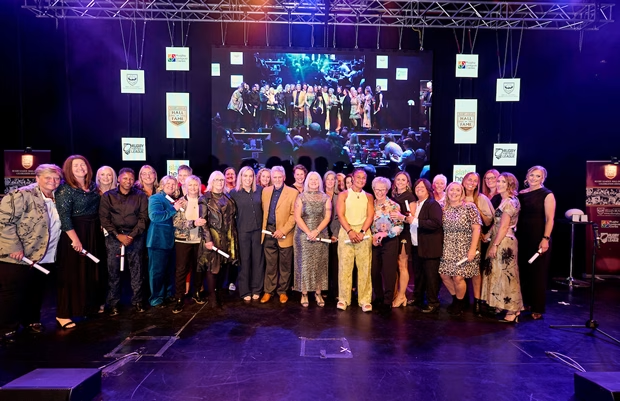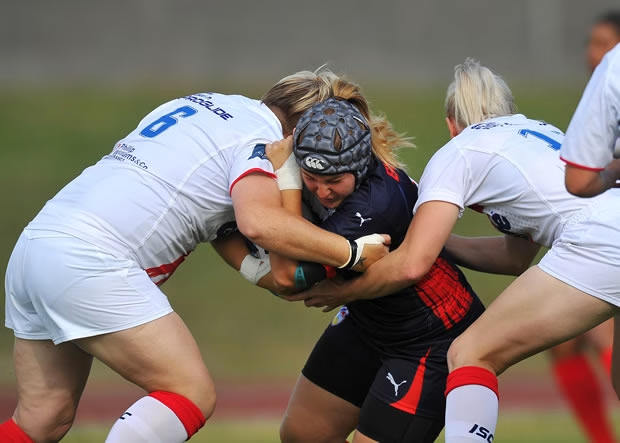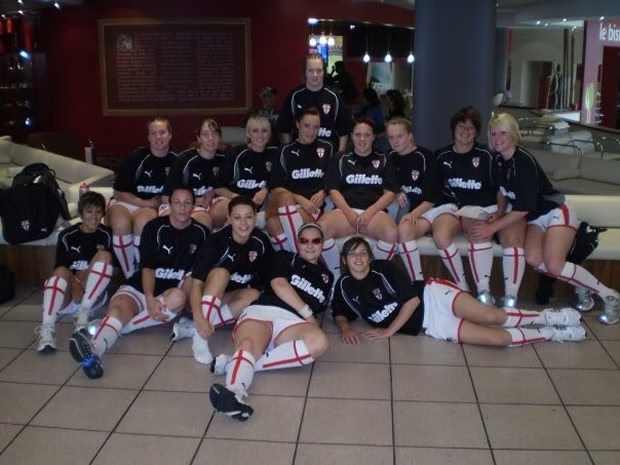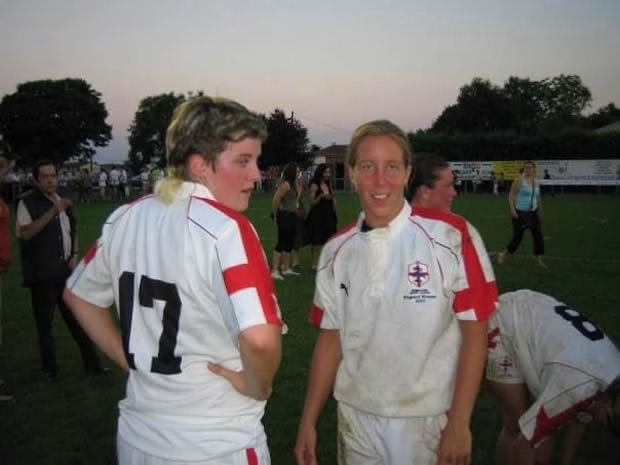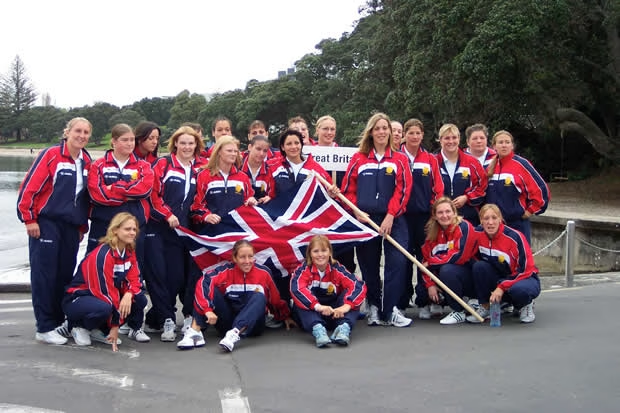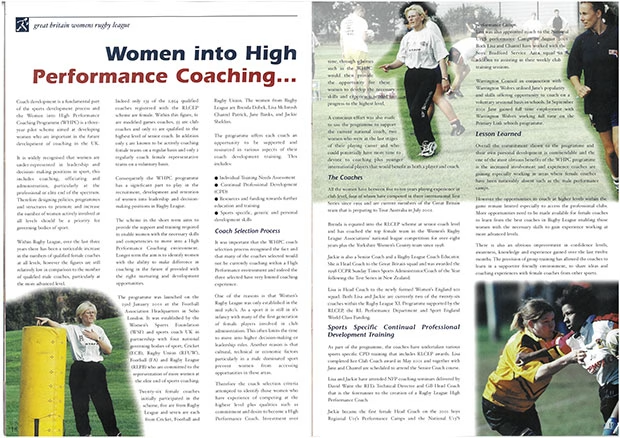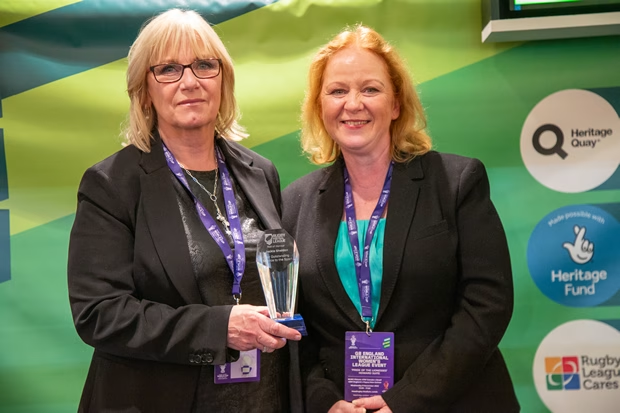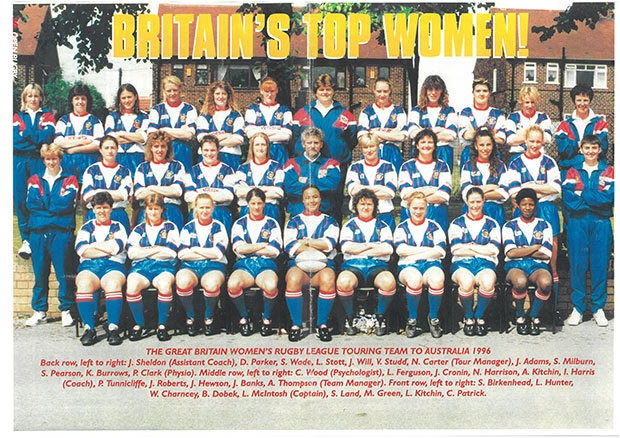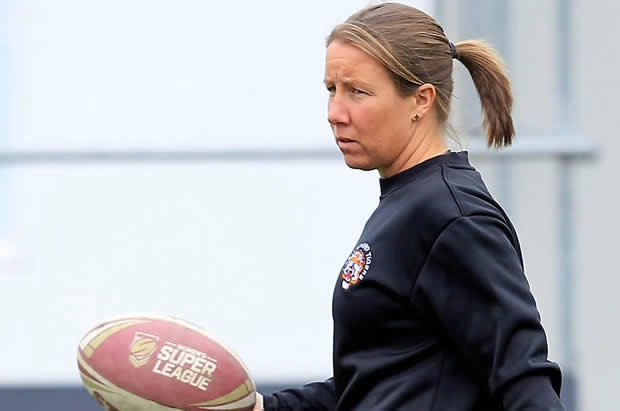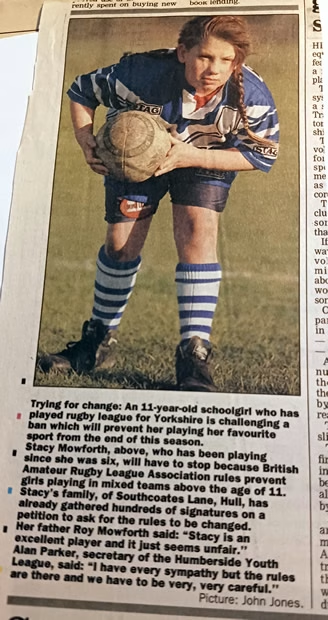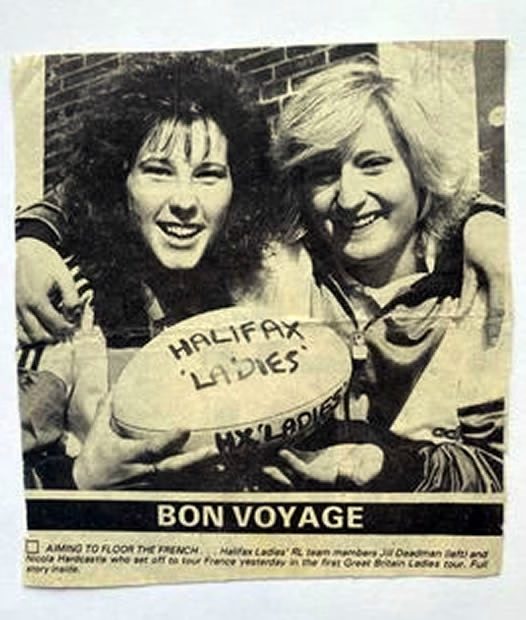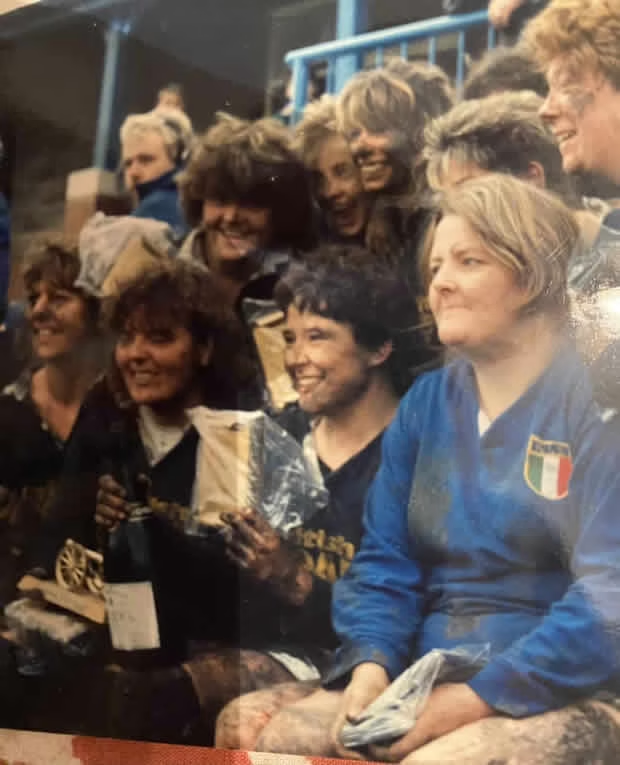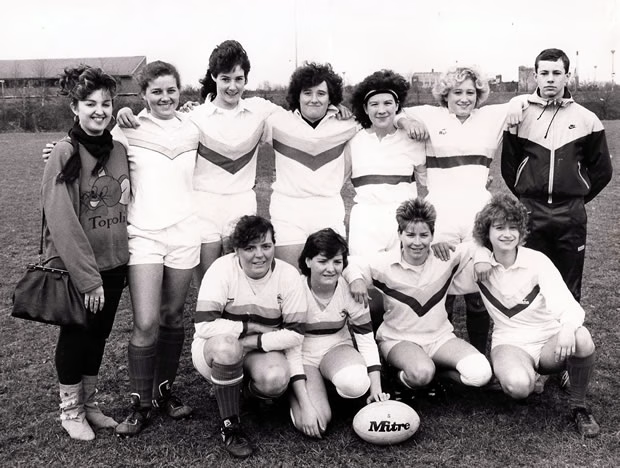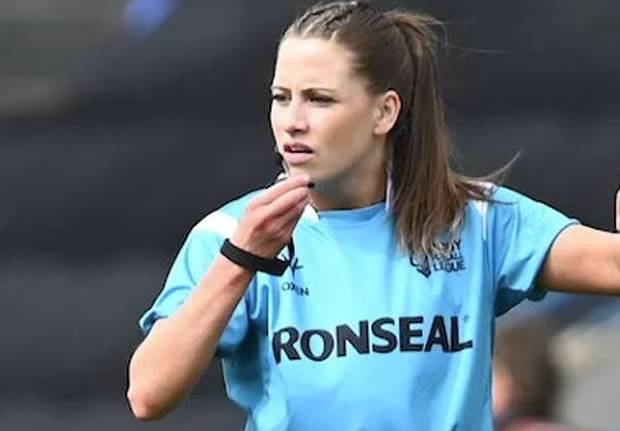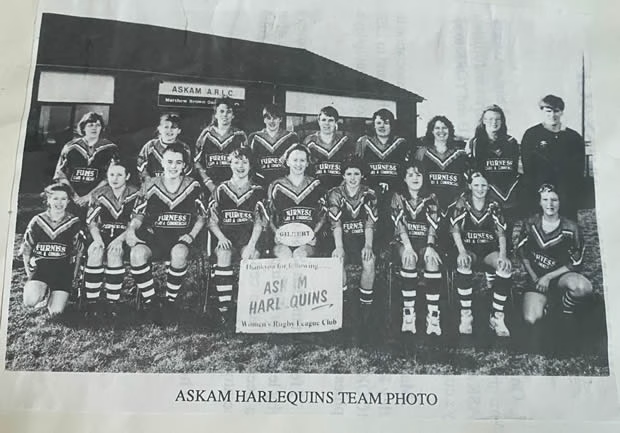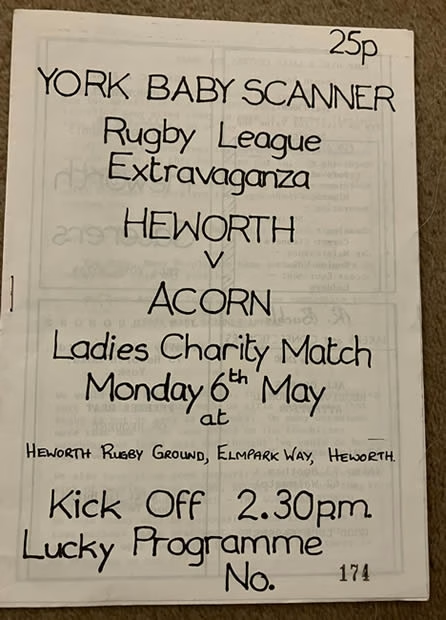The Ruck Batley Bulldog Girls
In 2015 Batley Bulldogs Girls team became the first girls team to tour Australia. ‘The Ruck’ written by Kevin Fegan tells the story of their adventures. ‘The Ruck’ was a co-production between Creative Scene and The Lawrence Batley Theatre and the script has been published by Playdead Press
We would like to thanks Kevin Fegan for sharing his blog from the tour and for the photographs by Len Grant, originally commissioned by Creative Scene, the Creative People and Places project for North Kirklees”
Since starting 3 years ago the Batley Bulldogs under 15 girls team, coached by one of the girls dads, have twice been national champions and now plan to make history by being the first girls rugby league team to tour Australia. For the past few months playwright Kevin Fegan has begun to chart this groups extraordinary journey. This blog tells the story of their exciting adventure down under.
7.30pm Soothill Working Men’s Club, Batley, 8th October 2015.
We have to be done in time for bingo at 8.30pm.
4 am set off from Batley Bulldogs on 20th October. 47 of us: 16 players plus families and me, playwright Kev Fegan, along for the ride, or rather, research for “The Ruck”.
Coach Craig’s got himself a new Bulldogs’ tattoo for the tour. And it’s itching. Someone recommends cream for piles.
Craig has two non-negotiable s:
1) 9.30am training & players meeting every day.
2) 6pm – kangaroo court at the hotel to deal with the day’s events and misdemeanours, in a light-hearted and informal way. But there will be forfeits as punishments. Families allowed to attend. I suggest they call it a “jillaroo court”, after the term the Aussies use to describe female rugby.
Four games lined up for the tour.
Coach Craig has a serious moment to emphasise his responsibility for the safety and welfare of the team – his coaching badge could be at risk. Importance of setting a precedent for future tours. Batley Girls’ Team are the first ever female rugby team to tour Oz. A proud moment in history. A standard to set. If a player falls below the standard required, she will be banned from training and the next game, regardless of who it is.
Lights out at the hotel will be enforced, but let’s wait until we get there to decide the time. One parent recommends “straight after Neighbours”.
Last fundraising event on 17th Oct – we need a final push to pay for the coaches to take us to matches.
The girls want to know when they’ll get their kit? Coach Craig replies, “When I get it.” Things are down to the wire; but in Batley they wouldn’t have it any other way. Life is a game – it matters that much. These are UK champions, we expect nothing less from our girls.
Thoughts turn to a return match with Aussie school champions, Merrimac High. They came over last year and are the only team to defeat the Batley Girls. They’re tough – they went swimming in the North Sea, at Whitley Bay, in October. And yes, they are better resourced than in the UK and they’ve been doing it longer and they spend more time in training than our girls; but we’re ready for the re-match. Coach Craig sums it up: “Let’s get back to what we know. I can’t wait for that first whistle.”
Time: it’s a tricky little concept. The night before the flight, I arrive at my hotel a year early, according to the booking form. Back to the future.
The following morning, I arrive at the wrong terminal. Rumour has it, the bar at Soothill Working Men’s Club was open at 3 am, while families gathered for their coach to Manchester airport; so by comparison I needn’t have worried.
For 24 hours, I watch a little animated aeroplane on the tv screen nudging itself across the world, one centimetre at a time. A pre-recorded blessing from the Holy Qur’an does little to steady my nerves. Finally, we arrive in Brisbane. The “rhubarb triangle” of Batley, Dewsbury and Wakefield seems 10,000 miles away – and it is. Somewhere along the way we’d shot 9 hours into the future and the future is called paradise.
The coach transfer drops us at the Mermaid Waters “Quality” Hotel, in the Gold Coast, just in time to miss last orders for food at 9pm. Someone suggests we phone Batley Dominoes for delivery of a job-lot of pizzas, but fortunately for us the local Dominoes is marginally quicker. 23 boxes and a bag of chips later, we realise there are pizzas missing. There is an immediate investigation into the “Pizza-gate” scandal, but ultimately it means we all have to share – another important lesson for our survival in paradise. Rugby League families have a tradition of sharing, we’ll do well here. After the girls retire to each other’s rooms, many beers go missing from the bar and I am initiated into the “wearing of the fez”, which parent Mick felt necessary to bring to Australia. I am pleased the ritual doesn’t involve rubber gloves or worse.
The first morning I get up early at 10 am and everyone has gone. Am I in the future again? After a morning run on the beach, they had set off on a 10 mins walk to Merrimac High School, where the girls were greeted as long-lost cousins by the pupils and staff at the school. When I arrive, dozens of girls are roaming the school fields, passing rugby balls between them, with big smiles on their faces. It seems a very happy school. Sport really matters here. The canteen sells fruit salad and sushi – not a baked bean in sight. Teacher and parent Michelle is already talking of teacher exchanges. Elsewhere, large Ibis birds, with beaks like scythes, scavenge the leftovers. In training, the girls are subdued as they acclimatise to the heat and the square-shaped shields. One of the girls is worried about getting stretch marks. Coach Craig is concerned.
“You should be happy we’re quiet, it means we’re listening to you, Craig,” comes the response. I think it’s a mixture of jet-lag and culture shock from exposure to the quality of life in paradise. Meanwhile some of our mums are checking out the monkey bars and play equipment in the school’s playground. They don’t realise I’m looking and I have a notebook. Merrimac’s Coach Dave entertains us with juxtaposed tails of shark attacks in the inland waterways around the Gold Coast and the Gold Medal won by one of the Merrimac Girls at the last Olympics. The Merrimac girls speak about their rivalry with one of the local teams:
“How many times do they want to lose to us? They only come to fight us.”
They advise our girls to watch out for a core of Polynesian “triplets” and the extreme heat at our first game on Saturday with North Ipswich Tigers. There is an impressive diversity in the Merrimac squad, including Kiwis, Polynesians and Aboriginals. There is some talk about the Polynesians’ love for the root vegetable, Taro, as an explanation of why they are so strong. For the Fijians it’s cassava; apparently the Tongans are just strong, whatever they eat.
Rugby League is driven by the schools here, unlike the UK where it’s the clubs who put in the work. As in the UK, girls have to stop playing rugby with the boys after 12 years of age. Coach Dave, like Coach Craig, started girls’ rugby in response to requests from the girls to continue playing. Merrimac Girls started in 2009, Batley Girls in 2012. They have a three-year head-start on us. But time is a trickster. Just because you start a thing, doesn’t give you the right to stay ahead. Former player and parent Steve has been talking in the pub to a group of Aussies who were surprised the Brits played rugby league. Things have clearly changed a great deal since that first meeting at the George Hotel in Huddersfield in 1895 when rugby league was created. Batley Bulldogs won the first ever Northern Union Challenge Cup the following year. Now look at us.
Before we leave Merrimac, we are treated to a short speech by one of Coach Dave’s pupil assistants, Riley, who tells us about recovering from his operation for brain cancer. He has been watching YouTube videos of “how I used to be”. His concluding message to us all draws a round of applause from the girls: “If you see it and believe it, you will achieve it.”
On the way back I see purple blossoms on the trees, a shredded snakeskin on the side of the road and I’m sure I hear my first kookaburra laughing at me.
Later in the day I meet the team coming back from the beach, warning me of an imminent thunderstorm. Bring it on, I think, with typical British bravado about the weather. The beach is stunning and empty because of the rain. I walk back along the road, past a series of massage parlours. I know the Gold Coast is well sporty, but the cynic in me wonders about their dark side. No one in paradise walks in the rain, so I’m an easy target for a group of lads in a passing car who think I have mental health issues. No problem, after witnessing Riley earlier, it’s water off a duck’s back for me, but it might be my first glimpse into that dark side.
That evening, the girls play blind-man’s-buff in the hotel pool. Now that’s proper feral. The girls steal Emma’s handbag and hold it to ransom. Apparently, Emma goes nowhere without her large handbag. I admire the girl’s ability to find a girl’s weak point, both off the pitch and on. One of the parents shows the girls a photo of a new born baby who is 9 hours younger back home.
“Get kettle on, let’s have a celebratory brew,” says one girl with typical adult head on young shoulders. Another parent wakes up her son to ask if he wants fish and chips?
“For breakfast?” he replies, not realising he’s suffering from jet-lag. Time, it’s relative, like a grandparent.
At the end of the day, parent and boys’ coach Paul, apparently known as Mr Grumpy by his lads, sums up the day: “I think I’ve used up a year’s worth of smiles in one day.” Strange the effect that paradise has on the psyche.
Training on the beach is a luxury, but it’s also hard graft. Adults versus Girls at “touch and pass” is our way of helping them to prepare for tomorrow’s first match.
Afterwards, the girls line up and, holding hands, run into the sea together. In that single act they personify girl power: all shapes and sizes in their bikinis – sod the media image of young women – these girls know how to celebrate themselves and their gender.
“It’s starting to get a bit tricky out there; better come in a little,” calls the lifeguard. “Stay between the red flags” There’s no compromise here, the riptide is lethal.
That evening we gather at the hotel swimming pool for a “barbie” and our first “kangaroo court” to deal with misdemeanours and to issue punishments. The girls elect a judge, the Team Captain Evie, and two legal advisors, Lilly and Lea. The two accused are brought before the court. Amanda (parent and police officer) upturns a table and creates a dock for the two accused, Ellie Mac and Emma. One of the parents comments:
“The police are on the scene now; it’s getting serious.”
Suddenly, this is my world – theatre, where we role play and transform ordinary objects into stage props. I’m liking this. I take the role of court reporter. The legal advisers read out the charges. The two stand accused of “being late for training on the beach” and of “not appearing with the correct kit for the occasion”. The accused are allowed to state their defence:
“I slept through my alarm.”
“My phone was broken.”
“We knew there was a training session.”
Their final comment condemns them. They are found guilty. Judge Evie consults her legal advisors to discuss the punishment.
“Emma, we are confiscating your handbag for one week.”
“Can I keep my purse and my phone?” Emma asks.
“Okay,” comes the reply, “But you have to forfeit everything else in the bag.”
Harsh.
“Ellie Mac, we are taking your Converse for one week.”
Very harsh – Ellie only has flip-flops left to walk in.
“That’s for the first offence,” adds Judge Evie. “There’s a second forfeit for the second offence.”
Lilly and Lea take great delight in delivering the punishment:
“You both have to jump in the pool now, fully clothed.”
Very, very harsh; but the girls are in charge. The punishments are immediate and there is huge applause when the girls jump into the pool.
Coach Craig quietly reminds them that, in all probability, at some point on the tour, the two accused might find themselves as judges and the judges might find themselves as the accused. What goes around comes around…like riptide.
The Aussies seem to revel in their horror stories. Our driver, Jamie, tells us of a recent murder in Ipswich, where we are heading off to play Ipswich Town Tigers in our first match.
Ipswich was originally a mining and railways settlement and it’s still an industrial area today. Not so different to Batley then. Along the way we pass buildings under construction for the next Commonwealth Games on the Gold Coast in 2018 and a series of theme parks. More horror stories about tigers eating their handlers from Jamie. The Aussies are blunt-speaking people: their road sign for “No Entry” reads “Wrong way, go back!”. I’m sure there are things we can learn from them.
We arrive at the Brothers League Club Stadium. Great to see we will be playing on a proper pitch. The club-house is more like a casino than a rugby club and it’s easy to see how they can raise money for the facilities. We’ve no sooner signed in than Charlotte’s grandma, Brenda, has pulled, despite not having the slightest intention of doing so. An ex-pat has taken a shine to her and whisks her away to the bar. Go Brenda! In the bar I’m watching the horse-racing and find myself favouring “Tortured Poet”. It loses. Amanda hands me a gambling helpline leaflet which is on display beside the slot-machines. Outside, the girls are warming up. Charlotte’s mum, Paula (a.k.a. “big mama”), is casually strolling past the opposition during their team talk. Go Paula! Even in the distance their girls look big. These are Brisbane Champions and they look the part. As they line up, I notice our girls are wearing skull-caps but none of theirs are. Only after a while do I notice that their team is entirely made up of Polynesians and ours are all white Brits. It’s a credit to the game that there is very little overt racism in this sport.
The first half is a shock to the system. And I mean the system. It’s like watching Batley Bulldogs play Leeds Rhinos – they are simply in different leagues. Nevertheless, our girls battle hard because they are proud. Jordan is carried off badly injured, followed by Becky. There’s no stopping these Ipswich Tigers. In the second half our girls battle even harder and Evie is carried off, but for the first time in their history, Batley Girls fail to score and the result ends at 48-0. No shame there. One of our ex-pat supporters’ comments:
“You think these Polynesian girls are good, you should try playing against their fathers.”
After the game, the girls from both teams come together to chant their own tribal songs. It’s a special moment. Coach Craig presents their coach with a team shirt and their player of the match, as voted by our girls, with a team strip and ball. In the dining area afterwards, the post-mortem starts. Jordan is given pain-killers and laid out on a bench. Her ankle is bound with an ice-pack. Her varnished blue toe-nails catch the light.
“I can’t teach you what you’ve learned here today. We came for the experience and that’s what we’ve achieved.” says Coach Craig. “You can hold your heads up high, we’ll go back a stronger team as a result of this tour.” As well as the rugby lessons, there are life lessons to be learned: how to accept and move on. The Polynesian Coach tells Craig how their families are all dedicated to rugby from the time they can walk, both males and females. He tells how their siblings are made to battle with each other to toughen them up. These are a warrior people and rugby is their way of life.
The following morning the team gather at the hotel. The girls admit to Coach Craig that they feel scared, but at the same time, they would want to play Ipswich again, given the chance.
“They kept chopping us in half,” says Ellie O.
Coach Craig says it’s the job of a prop forward to keep hammering away, drawing players in to stop you, until a space is created for other players to run into, with quick passes out of the ruck. There is some talk of the difference between the UK and Aussie game. Their safety code means they are not allowed to tackle above chest height. In the UK, it’s acceptable. Craig admits their rule is better and will recommend it to our RLF back home, but he outlines some of our problems. The Aussies tackle in pairs and are always moving up, which Batley have been taught how to do, yet have seldom had to do against UK opposition.
It’s not for me to comment on the rugby tactics, but I think there is a problem here with “sport mobility”. Forget social mobility, there isn’t a problem about players having reduced opportunities because of their class. There is a problem about countries like ours who can’t compete with rugby world leaders because we are under-resourced. Are we ever going to compete at this level? Batley Girls have taken the first steps with this tour, in raising the profile for girls’ rugby in the UK, with little support from the rugby authorities. They are pioneers and we should admire their spirit. Maybe, in years to come, our Lionesses national women’s rugby team could be world-champions in the making, like the national women’s soccer team. It doesn’t have to be another Aussie horror story. Go girls!
Sunday evening and the second kangaroo court finds Lilly accused of “snoring like a wilder beast”. Judge Evie asks for two legal advisors and Charlotte and Becky step up. Lilly feels she has no choice but to plead guilty. Someone suggests there are mitigating circumstances that should be taken into account – it could be genetic, given her dad, Mick’s track record. But this is dismissed, and the judges confer. The punishment is the confiscation of her hoodie for three days.
An appeal is made against Ellie Mac’s sentence at the first kangaroo court, given her bravery during the first match. It is found that Ellie is allowed to have one of her converse returned – it’s unclear if it is to be the right or left foot.
The next morning training is at Crocker Park, across the road from the hotel. Coach Craig prepares them for the next match tomorrow:
“You can get the crap kicked out of you again or you can give it to them while getting the crap kicked out of you; which is it to be?”
He’s left in no doubt they are up for it.
Tues morning and we’re off for Match Two against the Sunshine Coast Falcons’ girls under 15’s at Beerwah Bulldogs’ stadium. The dads are up for it – anywhere that has “beer” and “bulldogs” in the club name has to be shown respect. In actual fact, “beerwah” means “climbing up to the sky”. Compare “Batley”, which means “woodland clearing belonging to the Batte family”.
I’d complained at the first match that the girls didn’t have much of a team song compared to the Ipswich Tigers. I thought the girls deserved at least a rhyming couplet, instead of the single repetitive chant of “Batterley” (even though it pays due respect to the “Engerland” tradition of our national supporters). I needn’t have worried. On the coach, big Mel, with typical ex-pat passion, leads the way with a call-and-response chant:
“Everywhere we go – everywhere we go,
people want to know – people want to know,
whooo we are? – whooo we are?
shall we tell them? – shall we tell them?
we’re Batley, Batley Bulldogs – we’re Batley, Batley Bulldogs,
Batterley, Batterley, Batterley…”
The girls love it. Now we’re cooking. The girls sing their way to the match with resonant lyrics like:
“there’s not a star in heaven that we can’t reach”
“you don’t know you’re beautiful”
“baby, you’re a firework”
“your sex is on fire”.
(Interpret “gender” for “sex” and you’ve really got a sense of these girls).
We stop en route at “Australia Zoo”, created by Steve Irwin (the real Crocodile Dundee). Coach Craig tells me that his daughter and player, Millie, was a big fan. The zoo is a big hit with the girls, but it’s very hot.
The Beerwah Bulldogs ground is nearby. Bulldog colours are blue down under, but it feels like home. There is a good community-ground vibe here. It could be a mill-town, only their valleys are green and gold, not green and grey. The Falcons’ squad has been picked from several teams in their league, which sounds to me like expecting our girls to beat Yorkshire Girls. Still, at least they aren’t fielding an Under 16’s side, which we’ve just been told was the case for our first game against Ipswich Tigers – no wonder those girls looked so big. Some of our girls, like Codie, are only 13.
A train passes parallel to the pitch and blows its horn. The teams emerge. The referee and lines-people (politically correct, but doesn’t sound right) are women. They have a male and a female coach. There’s nothing lip-service about the role of women in rugby league here. The first try goes to the Falcons, with a great run from their leggy team captain. Then Evie gets Batley’s first try and we could all cry with relief. Yes! The Falcons are winning as a thunderstorm approaches. The first half is cut short and the teams withdraw. It’s against safety regulations to play here through storms. Bit of rain never bothers the Brits, but to be fair, we are talking forked-lightning. Anyway, it’s all over in a flash (sorry, couldn’t resist) and the teams emerge for a great second half. The girls are beaten 22-12, but the match was much closer than the score reflects. The girls are elated, apart from the injured Jordan who says,
“That was torture watching them and wanting to play.”
Afterwards, in the clubhouse, there are presentations. A Falcons’ official, who is a dead-ringer for Johnny Vegas, introduces their coach and special guests, Annette (a “jillaroo” – Aussie national team player) and Courtney (Queensland player), both local Beerwah celebrities. Casey wins Best Player, with special awards and gifts also going to Evie and Ellie O. The rest of the team are presented with NFL backpacks (where is our RFL when you need them?). Coach Craig presents their coach with a Batley t-shirt and their Best Player, No 13, with a club strip and ball. Craig delivers a very honest and gracious speech about the importance of the game and the tour to our team. After the photos, I talk to Annette and Courtney about the women’s game in Oz. They feel it’s still early days and growing, but they get to play at some top male matches as an opener with tv coverage. There is some money for the women’s game, but they have to play for the love of the sport, not as a career. Courtney started playing at six years old, but Annette breaks the stereotype when she tells me she didn’t start until she was fourteen. They are both genuinely interested in the women’s game in the UK. The women’s World Cup will be played in Australia in 2017. Now that’s something for our girls to aspire to, as they sing their way back to the hotel, heads held high.
When Coach Craig shakes my hand on Weds morning, saying, “In case we don’t see you again,” I know I’ve made the right decision not to go with the guys. Fortunately, due to bad weather, the deep-sea fishing is cancelled, so the guys decide to hire a boat and go fishing on the shark-infested waterways instead. Inevitably, the boat runs aground on a sandbank. The advice from a passing local is to “get out and push, pommies”. Imagine the scene: grown men (Adie, Mick, Craig, Slacky and Mel and Mick’s son Max – some rite of passage for him) tippy-toeing their way onto the bank, to the tune from “Jaws”…
Needless to say the hunter-gatherers make it back with a couple of tiddlers for tea, which we suspect they had bought for bait.
That night Coach Craig is having to deal with pastoral problems with the girls:
“I knew it was never going to be easy, bringing 16 girls to another country. Rugby League is a tough, emotional and mentally-draining sport and things are often said in the heat of the moment.”
The girls are learning to keep things on the pitch and not let things spill over into the dressing-rooms. The next match will be a real test of character.
Thursday morning, early start to Beenleigh State High School. On the bus up, one of the girls says,
“I’ve been listening to angry music to get me in the mood.”
“Show us your angry face,” says another.
They fall about laughing.
The welcome at Beenleigh is exceptional. It’s clear the pupils like being at school. In fact they turn up early to practise music, drama, dance or to play sport. Can you imagine a rugby match taking place in school-time in the UK? The Deputy Principal, George (a former rugby league player), gives me a quick tour of the school. They have their own farm and I’m introduced to the local cattle, the “drought master”. The abattoir is a major employer in the town and the farm produces revenue for the school. This is a former agricultural town which has become more industrial. The strawberry farms and sugar cane plantations are still there, but there is also an over spill of industry from Brisbane. The catchment area is mostly from a government housing estate near the school. Migrant labour has created a very diverse community of Polynesians and Brazilians, as well as the indigenous Aboriginals, the original German settlers and the Anglo-Saxon Aussies. I notice the Aboriginal art on some of the school buildings and George shows me their special unit for indigenous peoples. The Aboriginals in Queensland refer to themselves as “murrays” and speak of their own tribes as “the mob”. There is a national initiative in Australia called, “closing the gap” (also a rugby term, by coincidence) and the school are leading the way. At the G20 Summit in Brisbane, their Aboriginal School Captain danced in front of Presidents Obama and Putin.
Beenleigh is a low socio-economic area. In many ways, Beenleigh reminds me of Batley and the changes that have happened in the former mill-towns of Yorkshire with the influx of migrant workers and the decline in traditional industries. There is a need for both communities to reassess the identity of their towns and its people.
On the pitch, I’m introduced to another teacher and former rugby league player, Damien, who has lived in the UK. He gives me the email address for his father who is a retired rugby league journalist and suggests I contact him for an overview. Coach Craig gives the girls a pre-match talk and they all pull together on the pitch. I remember after the first two matches, Ellie O told me,
“We’re not used to having to tackle in defence so much, we’re used to going forward.”
This time, I see how good they can be, going forward. It’s a great match and Batley make history as the first girls’ team to win in Australia, 12-8.
After the game, the girls from the two teams are best of friends and there are lots of photo opportunities. One of their really fun players wants a photo with Ciara because she is the first player she has met who is small like her. Believe me, what they are lacking in height, they make up for in spirit. At the presentations, Ellie O and their Number 1 win Best Player Awards.
We’re treated to food and drink and a good time. George tells me how he grew up in a working-class household with five sisters, all of whom were athletic, yet, unlike him, not one of those girls had the opportunity to explore that skill. Now he looks at these girls and knows that he is part of making those positive changes happen for young people today.
When Coach Craig shakes my hand on Weds morning, saying, “In case we don’t see you again,” I know I’ve made the right decision not to go with the guys. Fortunately, due to bad weather, the deep-sea fishing is cancelled, so the guys decide to hire a boat and go fishing on the shark-infested waterways instead. Inevitably, the boat runs aground on a sandbank. The advice from a passing local is to “get out and push, pommies”. Imagine the scene: grown men (Adie, Mick, Craig, Slacky and Mel and Mick’s son Max – some rite of passage for him) tippy-toeing their way onto the bank, to the tune from “Jaws”…
Needless to say the hunter-gatherers make it back with a couple of tiddlers for tea, which we suspect they had bought for bait.
That night Coach Craig is having to deal with pastoral problems with the girls:
“I knew it was never going to be easy, bringing 16 girls to another country. Rugby League is a tough, emotional and mentally-draining sport and things are often said in the heat of the moment.”
The girls are learning to keep things on the pitch and not let things spill over into the dressing-rooms. The next match will be a real test of character.
Thursday morning, early start to Beenleigh State High School. On the bus up, one of the girls says,
“I’ve been listening to angry music to get me in the mood.”
“Show us your angry face,” says another.
They fall about laughing.
The welcome at Beenleigh is exceptional. It’s clear the pupils like being at school. In fact they turn up early to practise music, drama, dance or to play sport. Can you imagine a rugby match taking place in school-time in the UK? The Deputy Principal, George (a former rugby league player), gives me a quick tour of the school. They have their own farm and I’m introduced to the local cattle, the “droughtmaster”. The abattoir is a major employer in the town and the farm produces revenue for the school. This is a former agricultural town which has become more industrial. The strawberry farms and sugar cane plantations are still there, but there is also an overspill of industry from Brisbane. The catchment area is mostly from a government housing estate near the school. Migrant labour has created a very diverse community of Polynesians and Brazilians, as well as the indigenous Aboriginals, the original German settlers and the Anglo-Saxon Aussies. I notice the Aboriginal art on some of the school buildings and George shows me their special unit for indigenous peoples. The Aboriginals in Queensland refer to themselves as “murrays” and speak of their own tribes as “the mob”. There is a national initiative in Australia called, “closing the gap” (also a rugby term, by coincidence) and the school are leading the way. At the G20 Summit in Brisbane, their Aboriginal School Captain danced in front of Presidents Obama and Putin.
Beenleigh is a low socio-economic area. In many ways, Beenleigh reminds me of Batley and the changes that have happened in the former mill-towns of Yorkshire with the influx of migrant workers and the decline in traditional industries. There is a need for both communities to reassess the identity of their towns and its people.
On the pitch, I’m introduced to another teacher and former rugby league player, Damien, who has lived in the UK. He gives me the email address for his father who is a retired rugby league journalist and suggests I contact him for an overview. Coach Craig gives the girls a pre-match talk and they all pull together on the pitch. I remember after the first two matches, Ellie O told me,
“We’re not used to having to tackle in defence so much, we’re used to going forward.”
This time, I see how good they can be, going forward. It’s a great match and Batley make history as the first girls’ team to win in Australia, 12-8.
After the game, the girls from the two teams are best of friends and there are lots of photo opportunities. One of their really fun players wants a photo with Ciara because she is the first player she has met who is small like her. Believe me, what they are lacking in height, they make up for in spirit. At the presentations, Ellie O and their Number 1 win Best Player Awards.
We’re treated to food and drink and a good time. George tells me how he grew up in a working-class household with five sisters, all of whom were athletic, yet, unlike him, not one of those girls had the opportunity to explore that skill. Now he looks at these girls and knows that he is part of making those positive changes happen for young people today.





